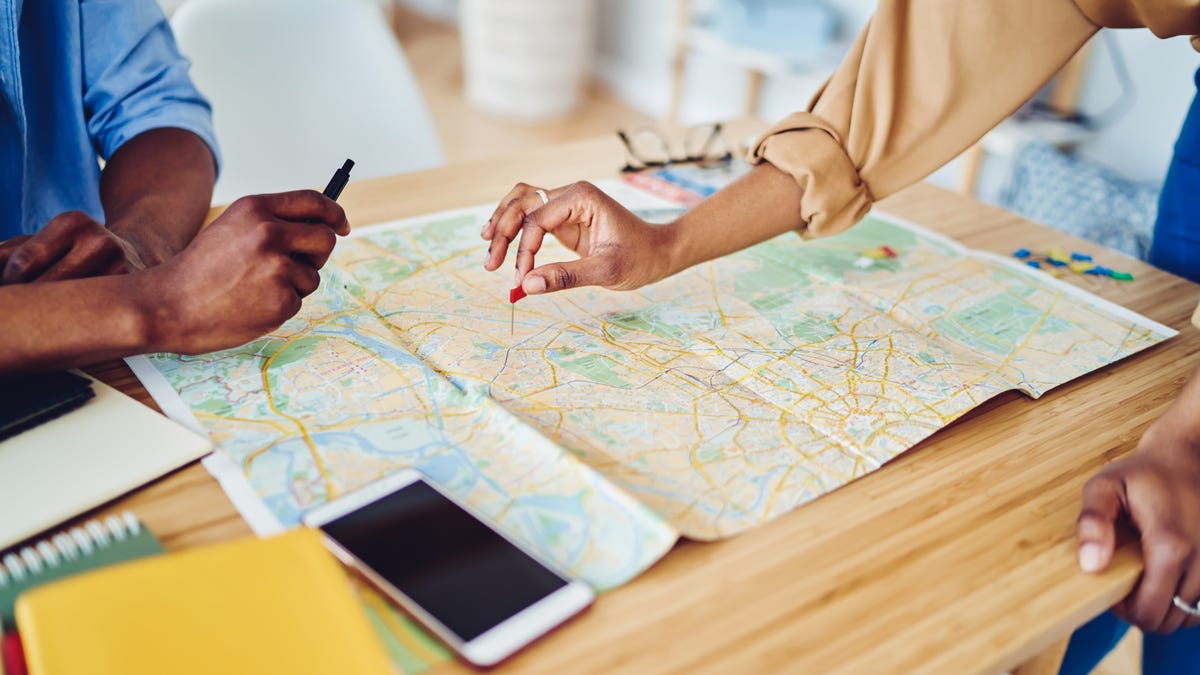It's Not Too Early to Plan Your Next Vacation - 5 minutes read

Fewer than 10% of Americans have received both doses of the COVID-19 vaccine, but that fact hasn’t deterred many from getting excited about their post-pandemic lives (especially the governors of Texas and Mississippi, but that’s a separate issue). After a year of lockdowns, it seems we’re all feeling cooped up: According to a survey administered by The Points Guys in conjunction with YouGov, 49% of Americans are looking forward to getting the vaccine specifically so they can resume safe travel.
The excitement is warranted. Planning a trip isn’t just about getting away—“vacation anticipation” is an important form of self-care. Having a getaway to look forward to can help us combat negative thoughts about the present with positive thoughts of the future. With the vaccine increasing the possibility of safer travel sooner, it’s not too early to begin planning your next trip—provided you go about it in the right way. Here are some important things to consider when making your hopeful 2021 vacation plans.
Keep travel restrictions in mind
The entire U.S. is currently listed as high-risk area for contracting COVID-19. Because of this, only a select number of countries are accepting American tourists—CNN has compiled a list. As you begin to plan your post-vaccination travels, use this list as a starting point.
Note that even if a given country is accepting U.S. visitors, the travel restrictions are different for each destination. Some restrictions are stricter than others. For example, Barbados previously opened its doors to Americans looking to work from home in a tropical locale. Its travel regulations mandate U.S. visitors stay at a government-approved hotel or resort and wear “an electronic tracking bracelet.” The Barbadian government also requires extensive testing that may hinder your ability to leave your hotel at all. You want to make sure you’re able to enjoy your trip, and quarantining in a government-issued hotel is probably not the vacation you are hoping for.
You will also want to pick a location that doesn’t require a negative test result when you’re ready to re-enter the U.S., as testing capabilities in other countries may be unpredictable and the CDC’s ravel quarantine rules remain in effect whether you’re vaccinated or not. If you’re returning from the U.S. Virgin Islands, for example, a negative test result is recommended before your trip home, but it is not a federal requirement.
Be prepared for COVID travel
Although the CDC still recommends postponing travel until it’s safer, they offer useful tips for travel during the pandemic.
“Bring extra supplies, such as masks and hand sanitizer,” the CDC suggests. It is a good idea to create your own travel kit, complete with one-time use latex gloves, extra masks, hand sanitizer, wipes, and sanitizing spray. You can also include items like face shields, hand soap, and other disinfectant products. If you are flying, don’t bring aerosol cans, and make sure your items meet the carry-on requirements so they will be easily accessible during your trip.
The CDC also recommends being fully vaccinated before you go—which means waiting two weeks after your second dose of a two-dose vaccine. As the country moves through the vaccination phases, opportunities for more individuals to receive the vaccine will arise, so plan your trip later in the year—for late summer or early fall—to increase the possibility that all members of your traveling party will be vaccinated by your departure date.
In addition, plan to be tested within 72 hours of your flight. To avoid last-minute complications, plan this down to the hour—if your flight takes off at 3 p.m., make sure your test is scheduled a maximum of 72 hours before then.
Know the cancellation policies
Some companies still have special cancellation policies in place to handle the uncertainties of COVID-19. Forbes recently published a “Master List” of flight change and cancellation policies, reporting:
Keep in mind that if your flight departing from, arriving into, or transiting the United States is cancelled by the airline, according to the US Department of Transportation, you will be eligible for a cash refund, full stop. This policy also includes flights that incur major changes, such as adding a connection or a schedule change of more than two hours.
More generous cancellation policies may ease your worries about last-minute changes, but paying extra for the fully refundable options on your flights and stays won’t hurt, either.
Most importantly, have a contingency plan. Despite the dangers, my family and I scheduled a trip to the Caribbean last summer. When travel restrictions changed, we had to cancel at the last minute, but we were able to switch gears, and ended up booking a trip to Martha’s Vineyard instead. We planned ahead, knew the flight return policies, and chose an Airbnb with a lenient cancellation policy. Our careful planning ensured we were still able to enjoy some time away, despite the last-minute upheaval.
So if you need to get away, have another vacation destination, one closer to home, as a backup. If you do need to cancel, you will still have a vacation to look forward to.
Source: Lifehacker.com
Powered by NewsAPI.org